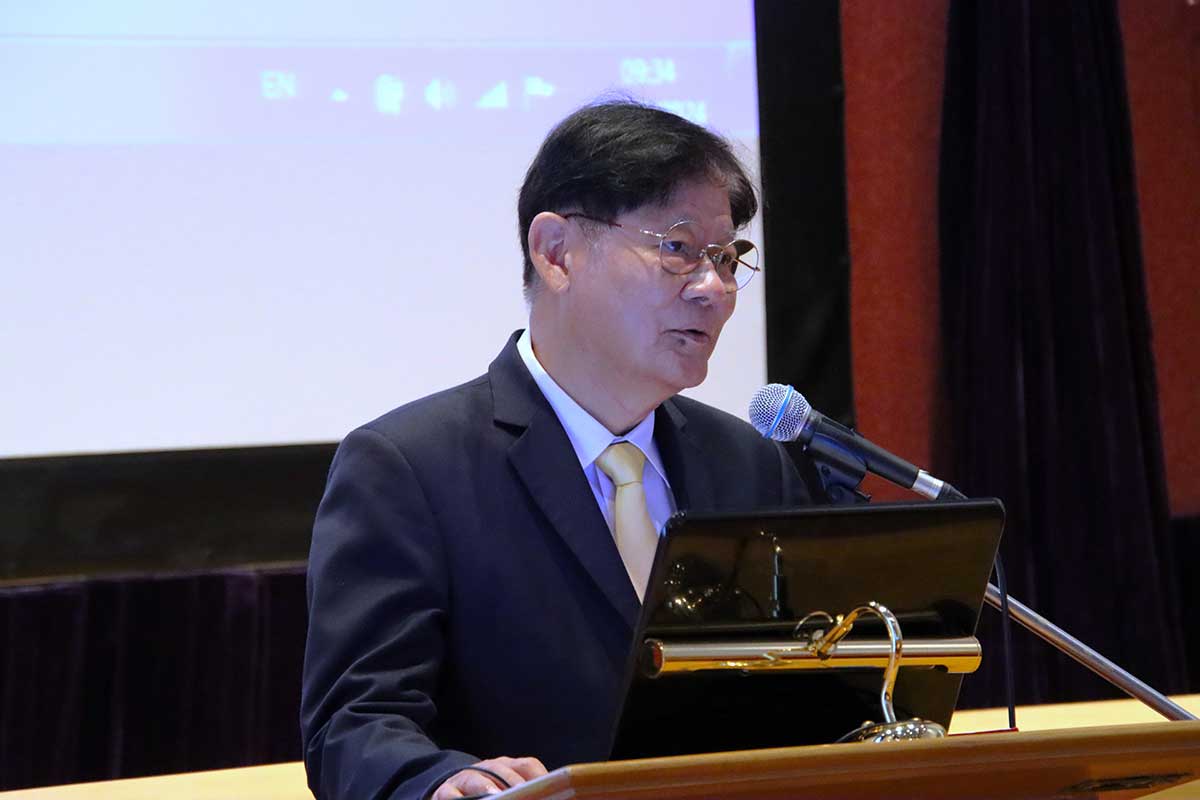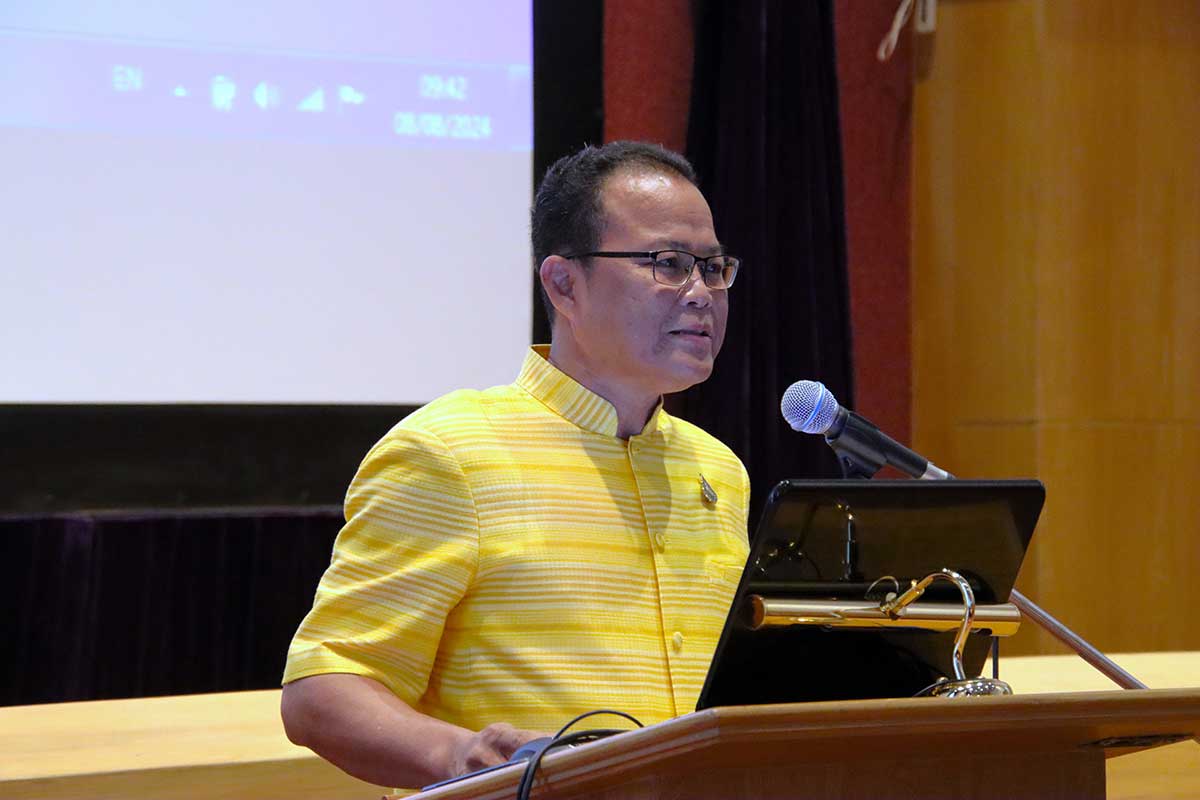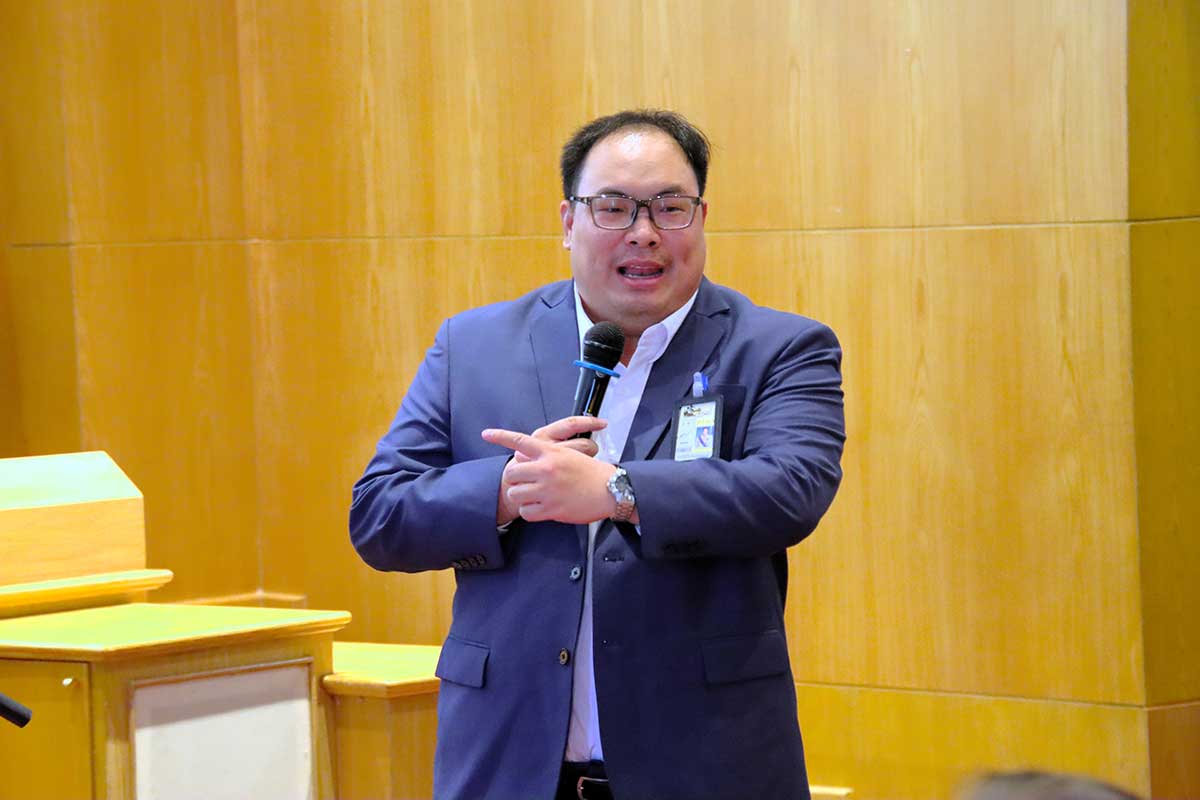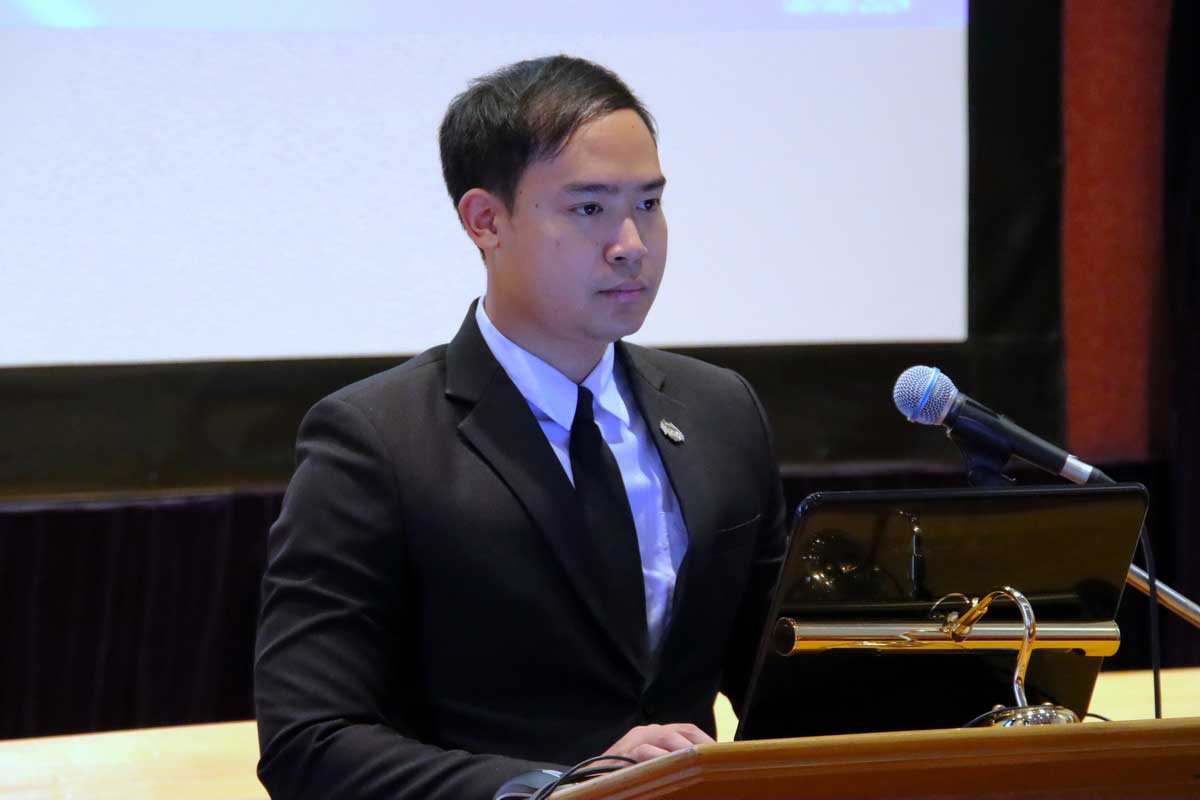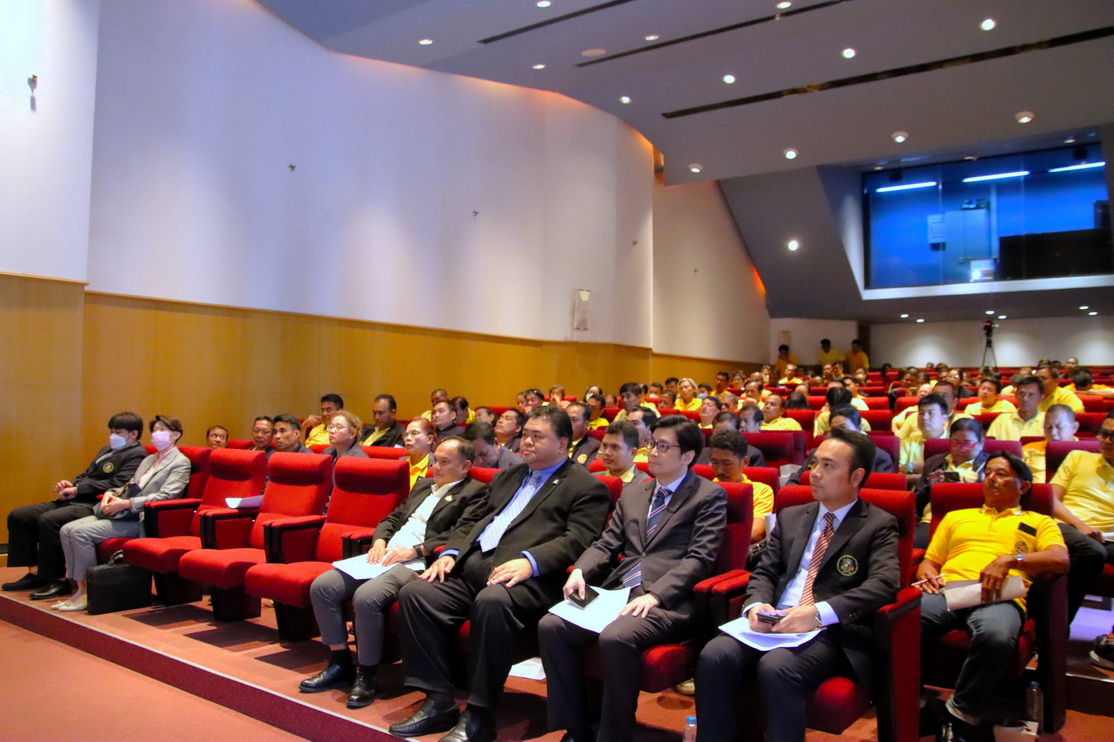In a significant stride towards empowering local governance, the Thomas Aquinas School of Law at Assumption University of Thailand (AU), in collaboration with the Institute of Research and Academic Services, successfully organized a landmark workshop on “Laws and Key Operations for Subdistrict Headmen and Village Headmen in the Modern Era.” The event took place on August 8, 2024, at the Thewa Niwet Room, The Cathedral of Learning Building, Suvarnabhumi Campus.
The workshop attracted over 130 participants, including key local leaders from the Bang Sao Thong District and surrounding areas. Opening remarks were delivered by Mr. Sompol Na Songkhla, Vice President for Legal and Privilege Affairs at AU. Representing the Deputy Governor of Samut Prakan Province, Mr. Raden Phomuang, Senior Assistant Chief District Officer of Bang Sao Thong District, provided an inspiring address, emphasizing the critical role of legal knowledge and administrative efficiency in strengthening local governance.
The program featured expert lectures from distinguished speakers, including Dr. Ratawit Jitsujaritwong, Director of the Criminal Investigation Division, Bureau of Investigation and Legal Affairs, and Mr. Parintorn Toranee, Governing Officer at the Department of Provincial Administration. Adding further depth, Mr. Artit Pinpak and Dr. Norarit Sudsanguan of the Thomas Aquinas School of Law shared insights on Alternative Dispute Resolution and Legal Counselling and Assistance.
This workshop underscored AU’s commitment to advancing community empowerment, legal literacy, and effective governance, equipping local leaders with the knowledge and tools necessary to address contemporary challenges in their roles.
Key Outcomes of the Workshop
- Enhanced Legal Knowledge – Strengthened understanding of laws and regulations relevant to community governance.
- Improved Administrative Skills – Practical training to streamline processes and improve efficiency.
- Strengthened Leadership Capabilities – Sharpened decision-making and problem-solving skills.
- Networking Opportunities – Built connections among leaders for collaboration and exchange of best practices.
- Access to Expert Insights – Gained updated perspectives from distinguished legal and administrative experts.
- Increased Community Confidence – Strengthened public trust in local leadership.
- Support for Continuous Education – Encouraged lifelong learning for sustainable governance.
Relevant SDGs:
- SDG 4 – Quality Education: Provides access to legal education and capacity-building for community leaders.
- SDG 10 – Reduced Inequalities: Strengthens inclusivity by ensuring grassroots leaders have equal access to legal and administrative knowledge.
- SDG 16 – Peace, Justice, and Strong Institutions: Promotes good governance, legal awareness, and dispute resolution mechanisms for stronger institutions.
- SDG 17 – Partnerships for the Goals: Demonstrates collaboration between academia, government agencies, and community leaders for sustainable development.
